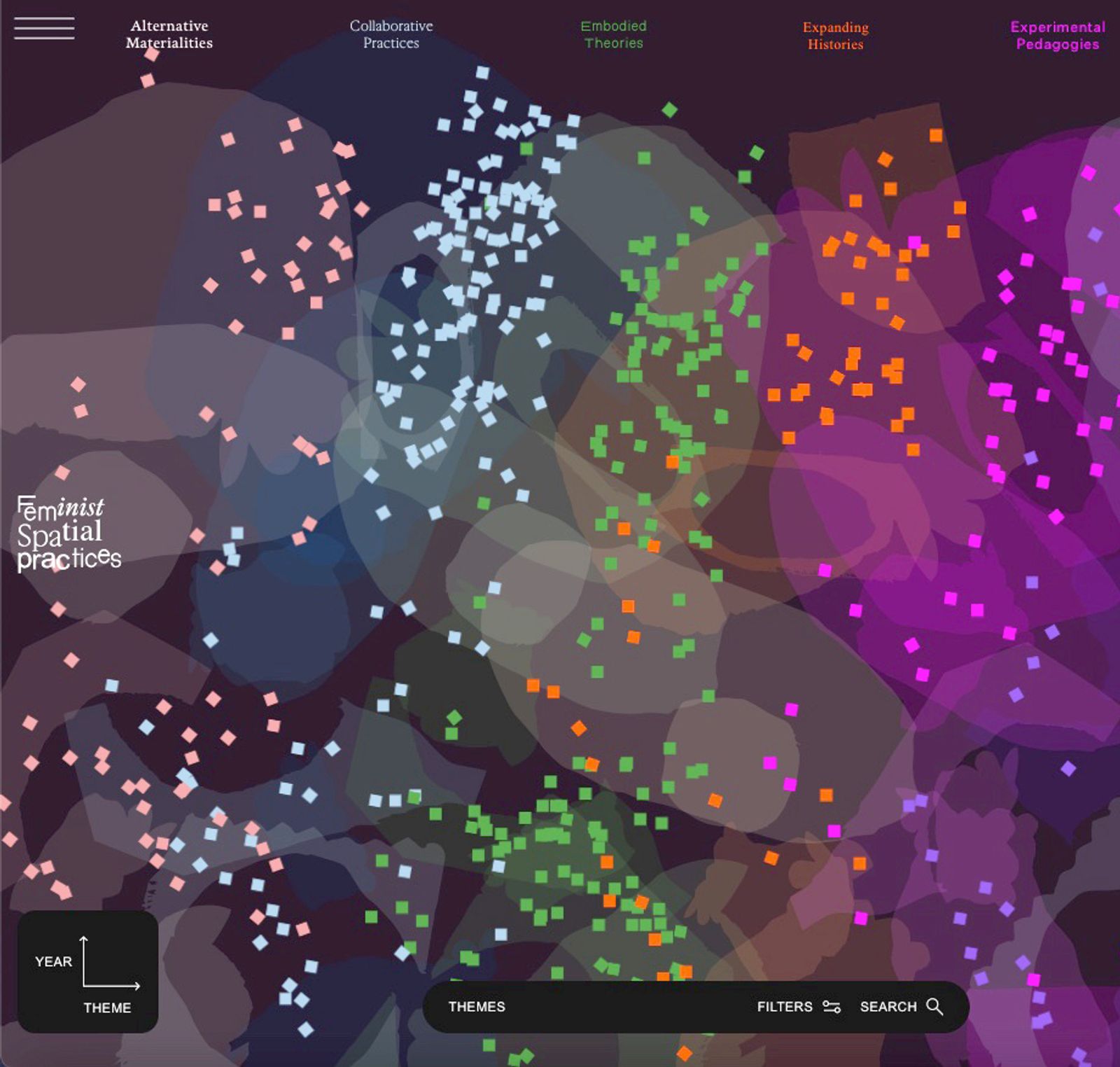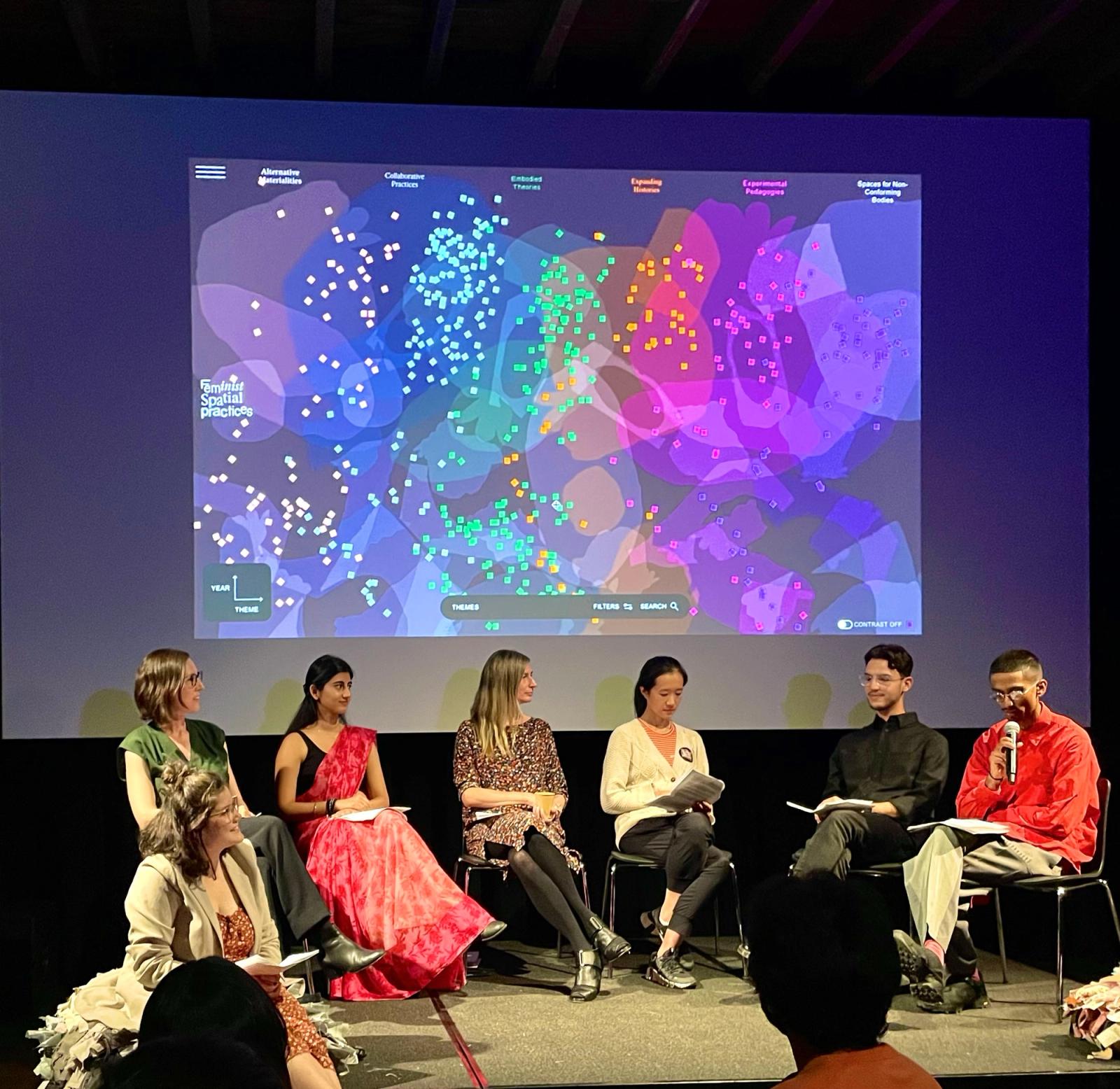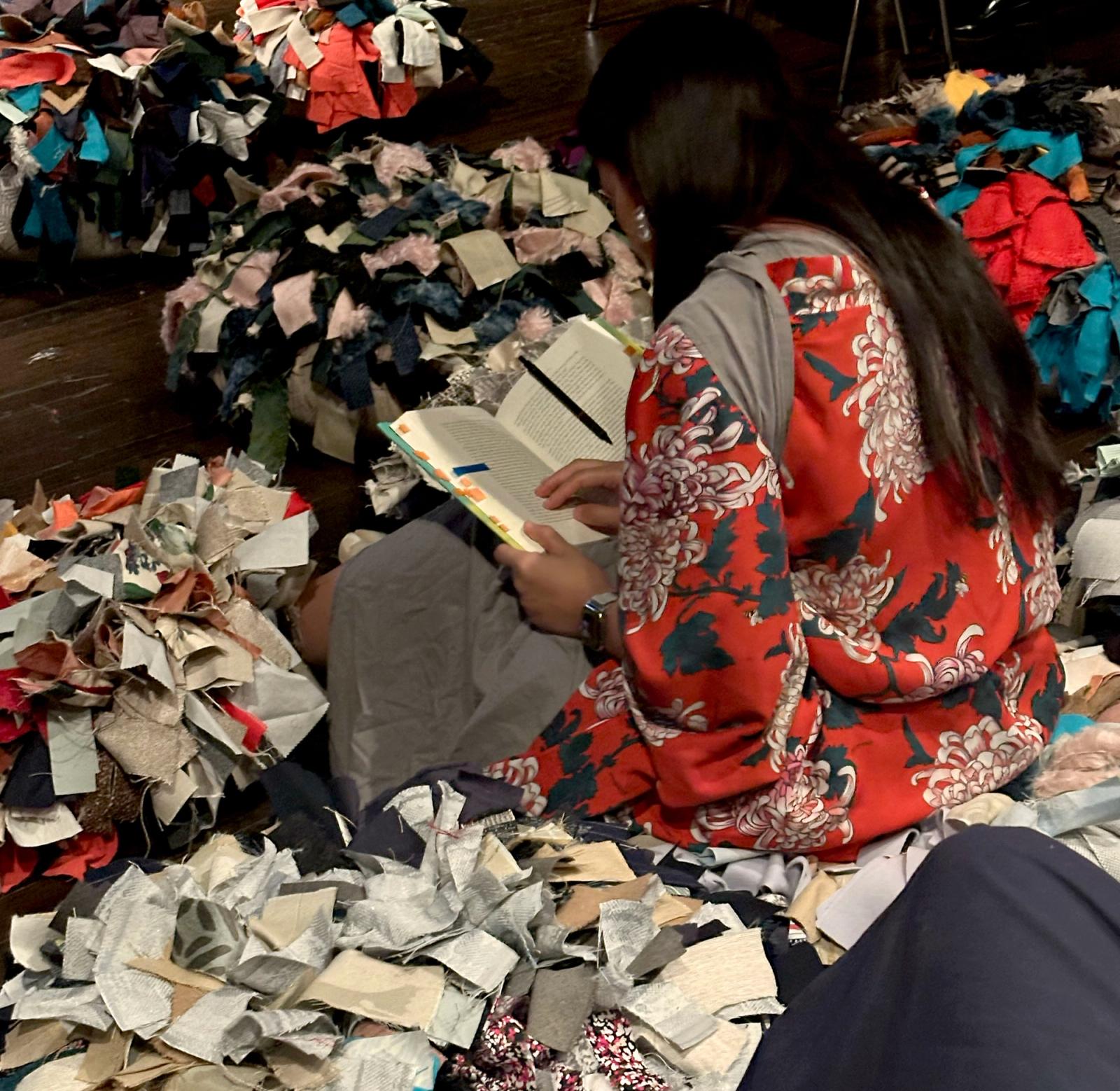Feminist Spatial Practices Platform Launch
Feminist Spatial Practices Platform Launch



After more than a year of collective research, Feminist Spatial Practices launched its online archive and interactive web platform on October 8, 2024 at the e-flux screening room in Brooklyn, New York. The experimental archive enables people to discover nearly 600 practices and projects through thematic relationships across time (preview images attached). This platform is a resource for knowledge sharing and community-building.
The launch event included presentations by our team as well as guest presentations by amazing practitioners featured on the site: A.L. Hu, Jerome Haferd, and Malkit Shoshan. The e-flux screening room was transformed into a landscape of soft fluffies, created through a participatory workshop held the previous week. A recording of the event is available on the e-flux site.